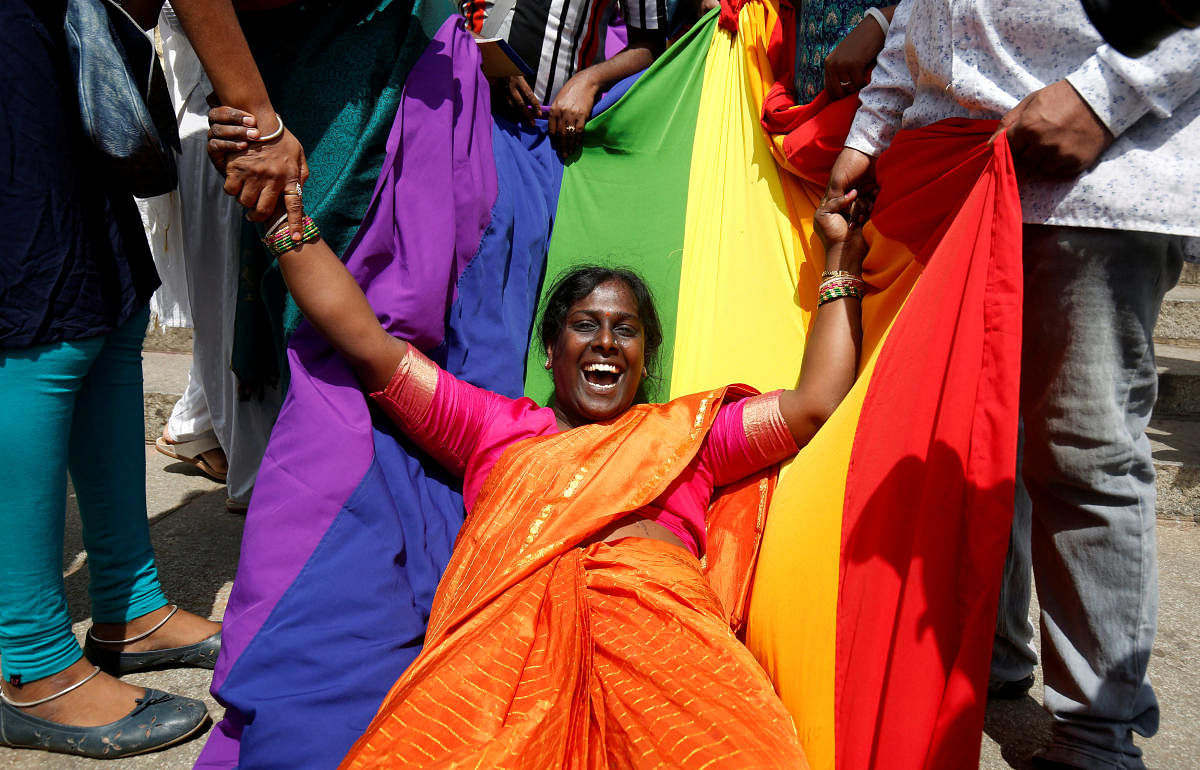
The Supreme Court has affirmed the best norms of equality laid down by the Constitution and the libertarian principles that underlie these norms by striking down the iniquitous and unjust Section 377 of the IPC which criminalised homosexuality. It has been a long struggle, as most freedom struggles are, against a colonial era law that discriminated against some people, and ostracised them for no fault of theirs. A five-judge bench headed by Chief Justice Dipak Misra has now pronounced that sexual orientation is not a crime and the members of the LGBTQ (lesbian, gay, bisexual, transgender and queer) community have the same and equal rights as all other citizens. This is an important landmark in the history of human rights in India. Most modern and democratic societies accept the rights of the LGBTQ community and treat them as equal citizens and India has joined them with this judgement.
The court has unanimously declared that consensual sex between adult individuals is no crime, and that should be the final legal word on the matter. The Delhi high court had in 2009 overturned the 1861 provision criminalising “unnatural sex,’’ but the Supreme Court in 2013 struck down the judgement. The latest judgement is based on fresh petitions against the 2013 ruling. It was clear from the court’s judgement on the right to privacy, where it said that sexual orientation was part of an individual’s rights, and its observations during the hearing of the case that the court was ready to take a fresh look at the matter. The government had also left it to the court’s wisdom to take an appropriate decision. The court has now pronounced that the section is arbitrary, sexual orientation is natural, criminalising gay sex is “irrational and indefensible’’ and every citizen has equal sexual rights.
It should be noted that Section 377 has not been completely struck down, and acts like bestiality are crimes. But it marks a great victory for gay rights, which lay at the centre of the contentious section. While the court’s decision has been widely welcomed, it may not immediately put an end to the prejudices about gay rights in society, in families and in the minds of many individuals. But it is important to push ahead with making members of the LGBTQ community equal citizens before the law in all other respects, too. Issues related to marriage, inheritance, adoption, etc., which arise in gay relationships, need to be addressed. Gay marriage is the most important among them. Liberal democracies around the world have legalised gay marriages, and India must do the same. This follows logically from the legal and constitutional position laid down by the court. It is now for parliament to take the lead without needing further prodding from the court.
ALSO READ
Sec 377: judges delve into world history, philosophy
We expected categorical position from govt, says SC